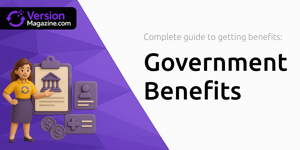Building lasting wealth and confidence begins with the smallest actions. By focusing on achievable, bite-sized financial moves, anyone can transform their money habits and unlock a brighter future.
Why Small Steps Matter
In a world obsessed with overnight success, the real power lies in incremental progress over time. Research from the FDIC highlights that even modest, regular transfers to savings accounts compound into meaningful balances. The key is consistency—not grand gestures.
When we embrace tiny actions, like redirecting the cost of a single coffee each day into savings, we tap into the principle of compounding. These micro-investments build confidence and provide tangible proof that financial goals are within reach.
Proven Strategies to Build Momentum
Adopting a financial routine doesn’t require a complete budget overhaul. Instead, start with simple, strategic habits. Each step contributes to a growing sense of control and achievement.
- Creating and sticking to a budget allocates resources intentionally.
- Automating savings through round-up transfers makes saving effortless.
- Setting clear targets—like a $500 emergency fund—provides direction.
- Embracing side hustles to inject extra income boosts savings potential.
Statistics show 41% of people credit budgeting as the top change in their relationship with money. Meanwhile, nearly two-thirds of Gen Z and Millennials are leveraging side hustles to accelerate their savings goals.
The Mental Health Connection
Financial stress takes an emotional toll, but developing structured habits can alleviate anxiety. A survey found that 58% of individuals who integrated money management into their self-care routines felt a significant reduction in stress.
Even a five-minute planning session can work wonders. Households with a written financial plan are 2.5 times more likely to save enough for retirement. By charting out expenses and tracking progress, you cultivate a mindset of empowerment.
Over time, these habits reinforce one another. Improved financial security fosters better mental health, which in turn encourages more disciplined money management. It’s a virtuous cycle.
National Financial Behaviors and Outcomes
Across the country, many still struggle with foundational habits. Consider these sobering figures:
These snapshots underscore both the challenges and the opportunities. While average debt levels may seem daunting, addressing the smallest leaks in your budget—like overlooked subscriptions or impulse buys—can shift the balance dramatically.
Overcoming Common Barriers
Financial literacy remains low. Only 48% of adults in the U.S. can answer basic money questions, and just 38% of Gen Z meets that standard. Layered onto that is a lack of early education: 80% of people wish they’d learned personal finance in high school.
- Ignoring the cumulative impact of small purchases leads to hidden drains on your budget.
- Relying on credit or payday loans traps many in cycles of high-interest debt.
- Overspending learned from family patterns perpetuates financial anxiety.
Breaking these habits requires awareness and intention. By tracking expenses diligently and questioning every purchase, you can reclaim funds that would otherwise slip through your fingers.
Actionable Steps Anyone Can Take
Regardless of income level or background, these practical moves offer immediate benefits. They fit seamlessly into daily life and build momentum quickly.
- Set up consistent automatic savings transfers to move money before you can spend it.
- Use free online tools to categorize expenses and identify budgeting opportunities.
- Allocate a fixed amount each month to an emergency fund, then increase it gradually.
- Explore gig work or freelance projects to add a small but steady income stream.
By focusing on these scalable actions, you develop both the discipline and the confidence to tackle larger financial goals. Each success, no matter how minor, reinforces positive behaviors.
Putting It All Together
Imagine your finances as a staircase rather than a leap. Each step, formed by daily routines and small sacrifices, raises you closer to stability and freedom. Over time, the climb becomes natural, and the destination feels attainable.
Remember that progress is not linear. There will be setbacks—unexpected expenses or missed contributions. When these occur, return to your core habits: review your budget, adjust your automated transfers, and recommit to your targets.
As you continue, you’ll find yourself embracing achieve long-term security and well-being not as a lofty dream, but as an unfolding reality. Your financial journey is uniquely yours; begin with the smallest step and watch as each action compounds into genuine transformation.
References
- https://www.fdic.gov/consumer-resource-center/2024-01/starting-small-can-lead-big-savings
- https://www.intuit.com/blog/innovative-thinking/beyond-the-budget/
- https://savology.com/13-financial-statistics-you-need-to-know
- https://cricketmedia.com/news-press/crickettogether-news-resources/building-money-smarts-how-early-financial-education-empowers-the-next-generation/
- https://www.makingsenseofcents.com/2018/04/money-habits.html
- https://www.nationaldebtrelief.com/news-media/survey-findings-bad-money-habits-by-generation/
- https://opentextbc.ca/writingforsuccess/chapter/chapter-3-putting-ideas-into-your-own-words-and-paragraphs/










